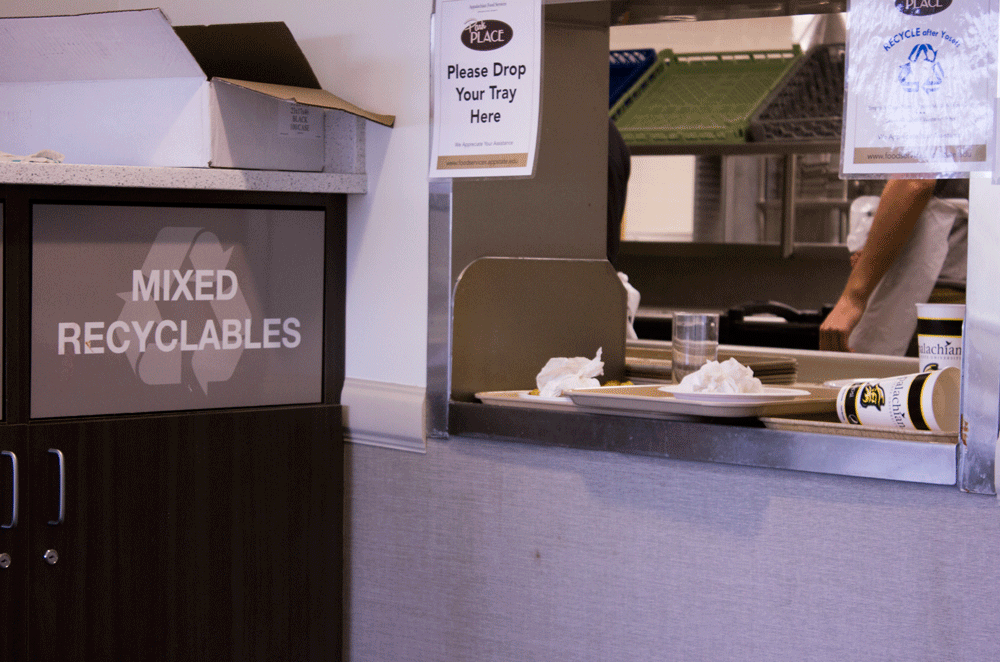Appalachian State University composted 92 tons of food waste from its dining halls last fiscal year, from July 12, 2013 through June 30, 2014.
During the last fiscal year, a waste audit was written to provide information on how much waste was composted throughout Appalachian’s campus. Out of six building categories, Roess Dining Hall had 68.9 percent of composted waste, while resident halls, Plemmons Student Union, academic buildings, physical plant and sports venues were less than 50 percent of compostable waste.
Compostable materials represented 20-58 percent of the waste generated at the various locations throughout campus. The majority of these materials consisted of food waste and compostable paper.
“As students at Appalachian State University, we have the power to implement change on the campus we call home,” said Elizabeth Roden, a senior appropriate technology major and employee at the sustainably office. “We can work as a student body to bring composting bins into our campus in buildings that produce a high amount of food waste like our central dining hall and turn our food waste into beautiful healthy soil here at our campuses compost facility.”
Appalachian’s sustainability program has the Zero Waste Initiative to reduce the amount of waste from the university. The commitment to zero waste begins with the reduction of consumption and thoughtful purchasing decisions that promote responsibility toward resources.
Jen Maxwell, a university program specialist in the sustainability office, said a comprehensive organics waste recovery and expanded composting program will be a key component of Appalachian’s waste diversion system to achieve its Zero Waste goals.
Maxwell also provided some useful ways to reduce waste on campus.
“Offering reusable items in the food services and catering areas, expanding water bottle filling station options, reducing paper usage, eliminating the use of single use plastic bags in retail areas are just some ways of reducing waste,” Maxwell said.
For more information go to sustain.appstate.edu.
Story: Tatiana Tellez, Intern News Reporter


Nicholas Eller • Jun 11, 2020 at 12:01 pm
I was wondering where all of that 90 something tons of compostable product is going? And what are they than doing with the compost then and who is hauling the composte?